History: Special Emphasis
America in World War I: 1917–1919
World War I introduced major changes to government-provided headstones, including size and inscribed features, as well as provisions for foreign-national POWs interred in national cemeteries.
World War I Veterans and Their Federal Burial Benefits
By Sara Amy Leach, NCA Senior Historian, from the AGS Quarterly - Bulletin of the Association for Gravestone Studies, Winter 2017 (Vol. 41, No. 4), provided with permission from the Association for Gravestone Studies.
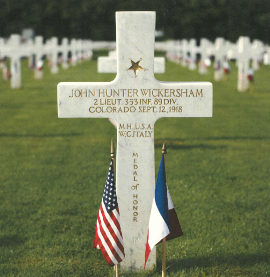
75 Years Ago: Remembering Pearl Harbor & World War II Veterans
December 7, 2016, marked the 75th anniversary of the Japanese attack on Pearl Harbor, Hawaii, an event that brought the United States into World War II. In less than two hours, the American death toll topped 2,400, with 1,178 injured. National Memorial Cemetery of the Pacific (NMCP) Hawaii, developed to bury Pacific Theater dead, opened in January 1949 with the interment of an unknown serviceman who died in the attack on Pearl Harbor.
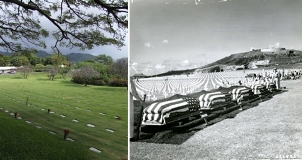
NMPC is the final resting place for many Pearl Harbor casualties, and by December of that year NMCP contained more than 13,000 World War II dead. Temporary wooden grave markers were replaced with granite flat markers in 1951. At NMCP, Pearl Harbor losses are commemorated by a memorial flagpole and seven monuments.
The Pearl Harbor Survivors Association, a congressionally charted veteran service organization formed in 1958, has donated more than 20 monuments to NCA cemeteries nationwide. In 2015 the Department of Defense (DOD) escalated its efforts to identify 1,061 individuals who died at Pearl Harbor and other maritime losses, and who were buried as "unknowns" at NMCP. Using DNA technology and other scientific techniques, as of this anniversary, DOD has disinterred 388 remains from NMCP and verified more than 50 identities.
Learn more about Remembering Pearl Harbor & World War II Veterans:
World War II veterans and their service relating to Pearl Harbor
NMCP from the National Register of Historic Places nomination
DOD "unknown" disinterments at NMCP*
Civil War Sesquicentennial Commemoration (2011–2015)
Timeline: NCA and the Civil War
To commemorate the 150th anniversary of the Civil War, NCA is proud to conduct special presentations at VA Headquarters and activities at its historic cemeteries. Programs recognize national cemetery origins as a consequence of the Civil War (1861–1865).
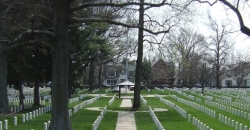
Civil War 150th Commemorative Series
Starting in fall 2012, with plans to continue through mid-2015, NCA is marking the sesquicentennial with occasional commemorative programs. These educational lectures and programs share with VA employees and guests new scholarship on themes relevant to the oldest national cemeteries, and projects demonstrating NCA's stewardship of associated historic resources. Program topics relate to the agency's origin with the Civil War, and touch on the diverse cultural and military service represented across the burial system.
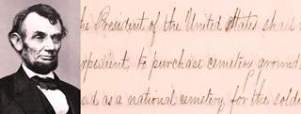
Enemy POWs in VA Cemeteries: World War I and II
During World War I and II, prisoners of war were interned in the United States — mostly German, Italian, and Japanese. Deceased POWs were interred in temporary camps, then in national or post cemeteries. Internationally accepted rules of war dictated this practice. Twenty-one VA cemeteries contain the remains of more than 1,000 enemy World War II POWs; two more also contain the remains or memorialize World War I POWs.
In December 2020, NCA removed two German POW headstones that contained Nazi inscriptions from Fort Sam Houston National Cemetery, TX; in March 2022, NCA removed a third and final German POW headstone inscribed with the 1939 Iron Cross from Fort Douglas Post Cemetery, UT. The removals followed completion of consultation, per the National Historic Preservation Act.
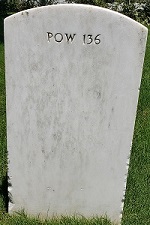
Learn more about enemy Prisoners of War (ePOW):
Names of enemy Prisoners of War (ePOW) buried in VA National Cemeteries and Post Cemeteries
NCA enemy Prisoners of War (ePOW) headstones removal and historical preservation
MOA Replacement of Two German POW Headstones – Fort Sam Houston National Cemetery
MOA Replacement of One German POW Headstone – Fort Douglas Post Cemetery
ePOW Headstone Preservation – Fort Douglas Post Cemetery (March 2022 Update)
* External Link Disclaimer: This page contains links that will open in a new tab and take you outside of the Department of Veterans Affairs website. VA does not endorse and is not responsible for the content of the linked websites.

















